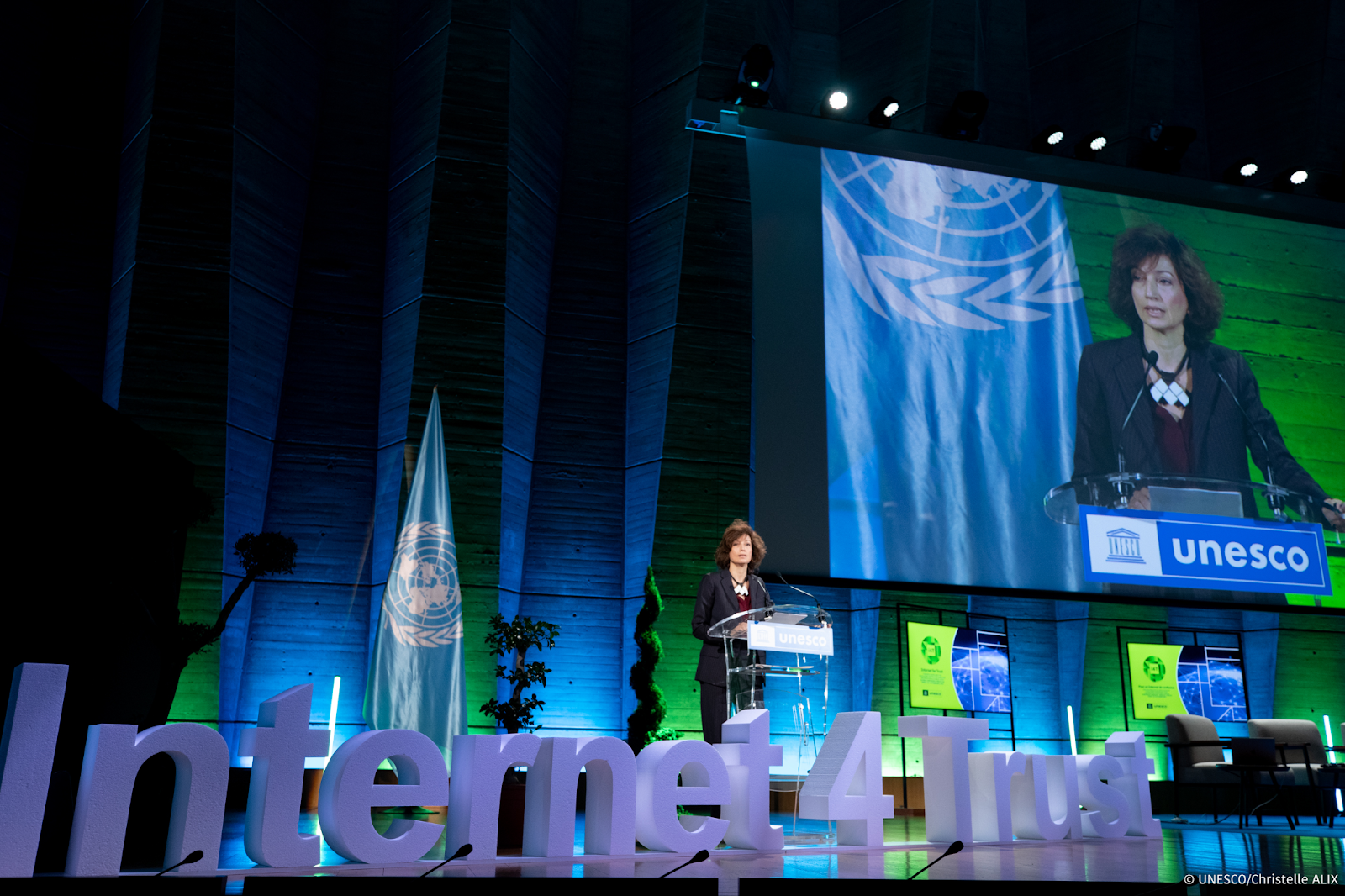The Internet of Trust: UNESCO’s Guidelines for a Secure Digital World
Introduction
In an era where an estimated 60% of the world’s population actively uses social media, building trust in the digital world has become a pressing concern. Recognizing the need for a secure online environment, UNESCO has developed a set of guidelines to shape thinking and behavior in the digital realm. These guidelines, known as the “Internet of Trust,” aim to foster transparency, accountability, and ethical practices among social media platforms. This article delves into the key principles outlined by UNESCO and explores the importance of creating a trustworthy digital landscape.
The Need for Trust in the Digital World
The rapid growth of social media has transformed the way people connect, share information, and access news. However, this digital revolution has also given rise to challenges such as disinformation, online harassment, and privacy breaches. To address these concerns, UNESCO emphasizes the significance of trust in maintaining a healthy online ecosystem.
The Impact of Disinformation
Disinformation has emerged as a major threat in the digital age, with false information spreading rapidly across social media platforms. Its consequences range from influencing public opinion to undermining democratic processes. Recognizing this, UNESCO highlights the importance of combating disinformation by promoting reliable sources, fact-checking, and ensuring transparency in content moderation.
Online Harassment and the Need for Safety
The rise of social media has also brought to light the issue of online harassment and hate speech. UNESCO emphasizes the need for platforms to prioritize user safety, foster a culture of respectful dialogue, and actively address cases of harassment. By promoting a safer online environment, social media platforms can encourage meaningful and inclusive discussions.
Protecting Privacy in the Digital Age
With the increasing digitization of personal information, privacy has become a paramount concern. UNESCO underscores the importance of data protection and calls for platforms to prioritize user privacy, obtain informed consent, and provide users with control over their personal data. By safeguarding privacy, social media platforms can enhance user trust and confidence.
UNESCO’s Guidelines for the Internet of Trust
To build a trustworthy digital world, UNESCO has outlined five key principles that should shape the thinking and behavior of social media platforms. These principles serve as a roadmap for platforms to establish trust, transparency, and ethical practices.
1. Accountability and Responsibility
UNESCO emphasizes the need for social media platforms to be accountable for the content they host and the impact it has on society. Platforms should establish clear policies regarding content moderation, fact-checking, and the removal of harmful or misleading information. By taking responsibility for the content on their platforms, social media companies can build trust among users.
2. Transparency in Algorithms and Content Moderation
Transparency is a vital aspect of building trust in the digital world. UNESCO urges social media platforms to be transparent about their algorithms, content moderation practices, and advertising policies. By providing users with insights into how content is curated and promoted, platforms can ensure fairness, prevent bias, and empower users to make informed decisions.
3. User Empowerment and Digital Literacy
To foster a trustworthy digital environment, UNESCO emphasizes the importance of empowering users through digital literacy initiatives. Social media platforms should prioritize educating users about online safety, privacy settings, and critical thinking skills. By equipping users with the necessary knowledge and skills, platforms can enable them to navigate the digital world responsibly.
4. Collaboration and Multistakeholder Engagement
UNESCO recognizes that building trust in the digital world requires collaboration between various stakeholders, including governments, civil society organizations, and technology companies. By fostering multistakeholder engagement, platforms can benefit from diverse perspectives, collective problem-solving, and the sharing of best practices. Collaboration ensures that decisions regarding online safety and transparency are inclusive, effective, and sustainable.
5. Privacy and Data Protection
Protecting user privacy and personal data is crucial for building trust in the digital age. UNESCO urges social media platforms to adopt robust data protection measures, obtain informed consent, and provide users with granular control over their data. By prioritizing privacy, platforms can ensure that users’ personal information is handled responsibly and ethically.
Conclusion
In an increasingly interconnected world, trust is the foundation upon which the digital landscape must be built. UNESCO’s “Internet of Trust” guidelines provide a roadmap for social media platforms to foster transparency, accountability, and ethical practices. By embracing these principles, platforms can create a secure and trustworthy digital environment, where users can engage, share, and connect with confidence. As we navigate the challenges of the digital age, building trust becomes paramount in shaping a positive future for the internet and its users.
